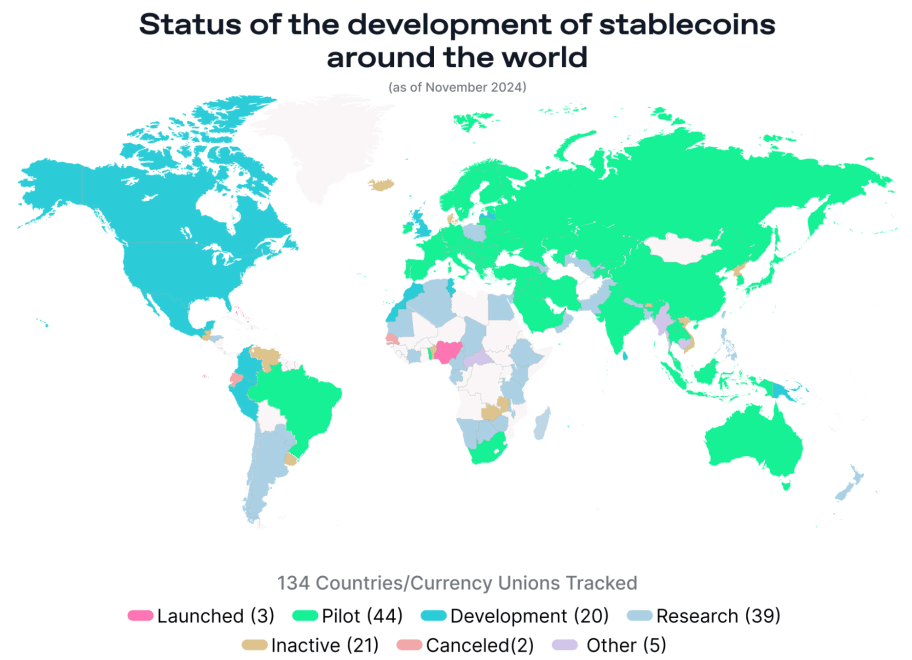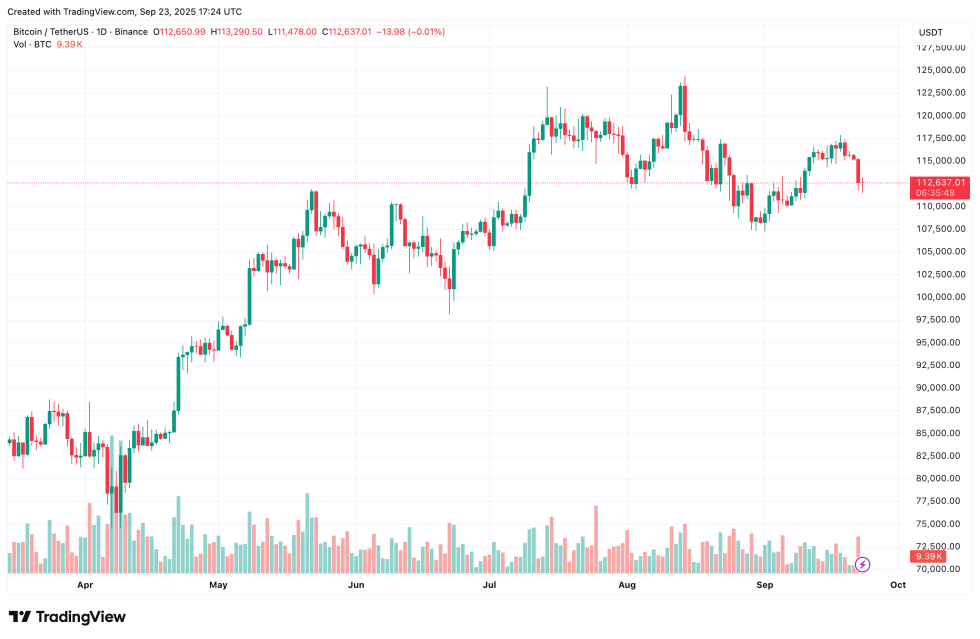The National Bank of Kazakhstan today announced the launch of its tenge-backed stablecoin called Evo (KZTE). The stablecoin is launched in partnership with Mastercard and the leading smart contract platform, Solana (SOL). Because nothing says ‘financial innovation’ like combining a blockchain with a credit card company. 🤯
Kazakhstan Unveils Solana-Powered Evo Stablecoin
In an announcement made earlier today, the Central Asian country of Kazakhstan unveiled a pilot project for its tenge-baked stablecoin, dubbed Evo. For the uninitiated, the tenge is the national currency of Kazakhstan. Because nothing says ‘financial stability’ like backing a crypto with a currency that’s probably only known to people who live there. 🤷♀️
According to the announcement, Evo’s issuance will be managed by other participants of the country’s digital assets regulatory sandbox. Notably, the two entities that will be overseeing the Evo stablecoin are likely to be crypto exchange Intebix and Eurasian Bank. Because nothing says ‘trustworthy’ like a crypto exchange and a bank that’s probably more familiar with horse trading than blockchain. 🐎
The developers have dubbed Evo the “national stablecoin” and aim to leverage the technology to bridge the gap between blockchain innovation and traditional finance. The stablecoin will be used for a variety of purposes, including expanding crypto-fiat gateways, swapping digital assets, and aiding crypto card-based transactions. Bridging the gap between blockchain and traditional finance? Because what the world needs is more ‘bridges’ that are actually just a bunch of people trying to figure it out as they go. 🚧
Low-latency and high-throughput smart contract platform, Solana, will be used to power the Evo stablecoin. Solana’s rapidly growing infrastructure will be critical in ensuring a smooth payment experience and large-scale stablecoin adoption in Kazakhstan. Solana’s infrastructure is ‘rapidly growing’-a phrase that could mean anything from ‘barely functioning’ to ‘on the brink of collapse.’ 🚀
Besides powering the stablecoin, Solana has also signed a Memorandum of Understanding (MoU) with Kazakhstan’s Ministry of Digital Development to create a special blockchain economic zone in the country. Solana has also signed an MoU to create a blockchain economic zone. Because nothing says ‘economic prosperity’ like a zone where the only thing that’s ‘special’ is the confusion. 🧠

In the same vein, Mastercard will leverage its expertise in payments to integrate KTZE with stablecoin issuers around the world. Such integrations could open the doors for cross-border payments and international utility. Mastercard, the company that’s been around since the 80s, is now integrating with stablecoins. Because nothing says ‘innovation’ like a 40-year-old company trying to keep up with the kids. 🕰️
It is worth noting that the National Bank of Kazakhstan will not issue the stablecoin directly. Rather, the regulator will provide a legal framework for the issuers to issue the stablecoin. The framework will also be used to test Evo and to develop the virtual currency market. The National Bank isn’t issuing it directly. Because why risk your reputation when you can let others take the fall? 🤝
The Head of the National Bank of Kazakhstan, Timur Suleimenov, pointed toward the importance of the pilot project, saying that cryptocurrencies and blockchain technology could play a significant role in increasing financial accessibility. Timur Suleimenov says crypto could increase financial accessibility. Because nothing says ‘accessibility’ like a system that’s still figuring out how to count. 🤔
Stablecoin Growth Is Taking Over
While leading cryptocurrencies like Bitcoin (BTC) and Ethereum (ETH) continue to witness rising adoption, an unlikely class of digital assets like stablecoins is experiencing just as much adoption, if not more. Bitcoin and Ethereum are still popular, but stablecoins are the new kids on the block. Or maybe the old kids who finally grew up. 🧑🎓
For example, South Korean banks are reportedly in talks with leading stablecoin issuers such as Circle and Tether to develop a market for Korean won-backed stablecoins. Similarly, Standard Chartered is expected to apply for a Hong Kong stablecoin license. South Korean banks are talking to Circle and Tether. Because nothing says ‘financial stability’ like a bank that’s probably more familiar with kimchi than crypto. 🥢
Earlier this year, Citigroup predicted that the stablecoin market is likely to grow by another $1.6 trillion by 2030. At press time, BTC trades at $112,637, up 0.1% in the past 24 hours. Citigroup predicts a $1.6 trillion growth in stablecoins. Because if there’s one thing we can count on, it’s that people will keep throwing money at problems they don’t understand. 💸

Read More
- Gold Rate Forecast
- TRUMP PREDICTION. TRUMP cryptocurrency
- USD CNY PREDICTION
- Brent Oil Forecast
- ETH PREDICTION. ETH cryptocurrency
- Crypto Chaos: How Biden’s “Operation Choke Point 2.0” Left Crypto High and Dry!
- Silver Rate Forecast
- TAO PREDICTION. TAO cryptocurrency
- Cristiano Ronaldo’s Meme Coin: A Scandalous 15-Minute Financial Farce 🤡💸
- Ant Group’s “ANTCOIN”: Will It Conquer Crypto? Find Out What’s Next!
2025-09-24 12:16